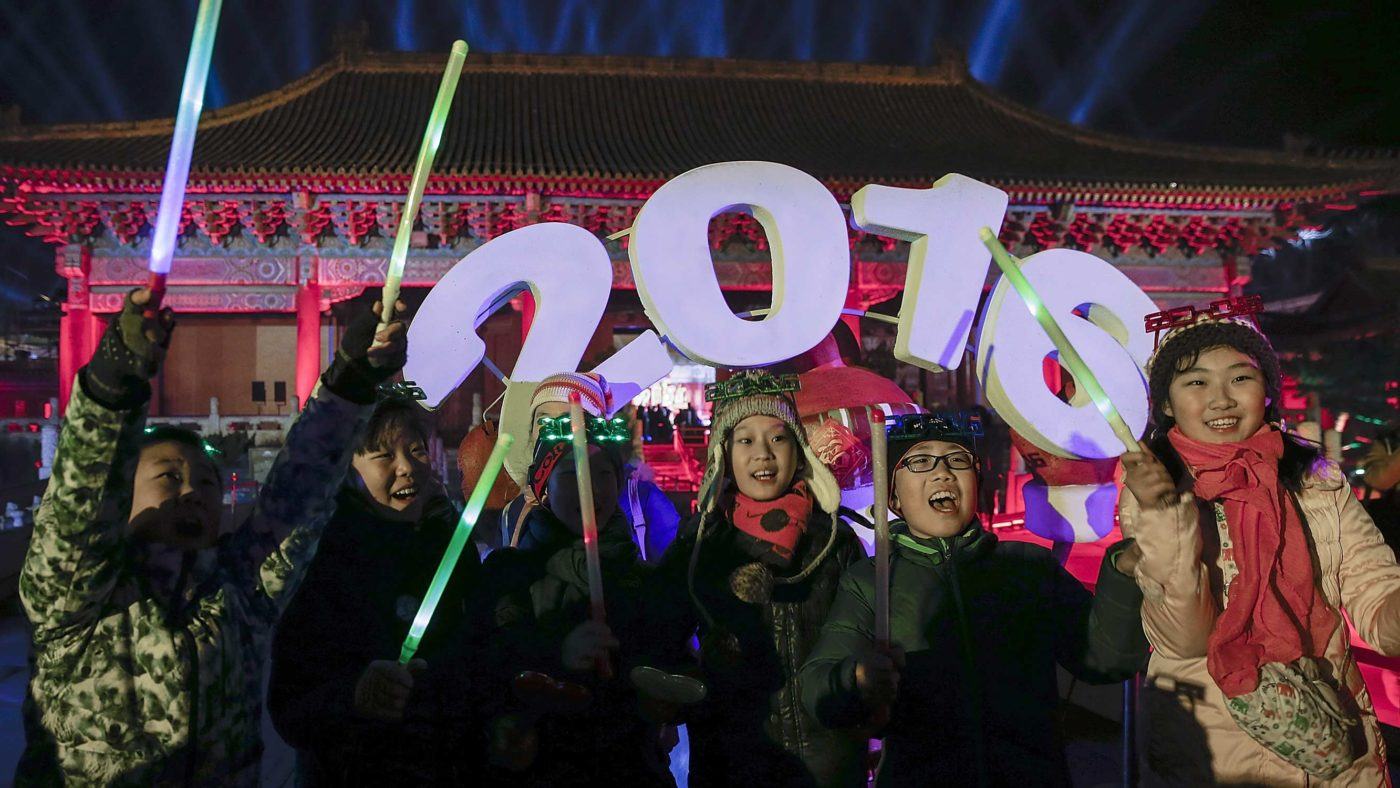2016 has become a thing. You may think this only fitting; a dismal trend at the end of a deplorable year. That, at any rate, appears to be the consensus opinion.
You hear people say, “That’s so very 2016” and they don’t mean you to think “Oh, that must be nice. I’m happy for you.” No, they mean that something terrible has happened or at least something that demands a sigh and a knowing shrug and a quizzical eyebrow and a “well, of course it would be like that” exhalation of insider fatalism. “2016? Meh, I preferred the millenium’s earlier work.”
It is true, I suppose, that there have been some deplorable moments this year. Times when it has seemed as though the world is headed for, if not the brink of something dreadful, then the brink of that brink. Which, if you voted against Brexit (as I did) and dearly hoped Hillary Clinton would become the next President of the United States (as I did), might seem fair enough.
Though, in truth, these were very different events too easily conflated into a single, transatlantic, calamity.
Until June, after all, few people considered the EU, and Britain’s membership of it, a deeply elemental part of their identity. True, there are some things you do not realise you value until they are taken from you but, for most of the time for most people, the EU is a transactional arrangement and not much else.
A sub-optimal outcome – if such it proves – should not be confused with an intolerable one. Other countries, including some in Europe, manage to cope without being full members of the EU.
There are, I concede, fewer reasons for optimism when we peer across the Atlantic. The election of Donald Trump has been a depressing business and not simply because it replaces a president elected on a wave of extravagant hope with one chosen on the basis of atavistic fear.
Even so, Trump’s presidency is a test of that great republic’s institutions. If the United States cannot weather four (let it only be four) years of Trump, its foundations were less secure than we once reckoned. Trump is a test, then, and one worth passing.
Elsewhere, it seemed as though each week another much-loved celebrity or artists shuffled off this mortal coil. Bowie, Wilder, Cohen, Prince, Rickman, Glenn, Wogan. You know how it went. With each addition to the Grim Reaper’s list there’d be people complaining that, “Look 2016 you’ve had your fun but you’ve gone too far now”.
I hate to break it to these people but plenty of famous people died in 2015 and even more will do so in 2017. The years accumulate with mathematical certainty and people who became famous in the 1960s and 1970s, the years of mass but limited media, are going to keep dying. Suck it up, people, because there’s more of this on the way.
In any case all this ignores the fact that 2016 has, once again, been a year of wondrous progress.
This is so even allowing for the horror of Syria’s charnel house and the longer-term implications that poses for what we fondly deem the ‘international order’.
Syria, mercifully, is the exception to a general rule which is that, all things considered, the world has rarely been a more peaceful place. Colombia showed that even wars that have lasted decades can end.
It was a good year elsewhere too. The World Health Organisation reported that deaths from malaria have declined by 60 percent this century. Relatedly, life expectancy in Africa has increased by 9.4 years since the millennium. Sometimes progress advances in leaps, not steps.
Viewed from the privileged West, it can be hard to appreciate this global transformation for the better in recent years. A generation ago, the majority of people in East Asia lived in extreme poverty; now less than five percent do so. This trend is not restricted to China either; economic growth in India, Bangladesh and Pakistan continues to transform those countries.
Meanwhile, while progress has been slower in sub-saharan Africa, it remains the case that while almost 60 percent of its population lived in extreme poverty in 1993, a generation later “only” 40 percent do so. The world really is a better place for most of its inhabitants.
You might object that the measurement of “extreme poverty” is, at $1.90 a day, miserably low and you might further suggest that there remains much work to be done. On both counts you would be correct.
It takes a wilful form of blindness, however, to deny the extent and rapidity of the change the world has experienced these past thirty years. If this is what globalisation does, the world needs more of it.
And that is the danger the world now faces. The era since 1989 should be thought of as years of what might be termed a Great Openness. Extraordinary advances – in science, technology, medicine and communications – have transformed our planet. Democracy, though challenged in Russia, China and elsewhere, has advanced more swiftly than at any point in human history.
The average human alive today lives a life of health, length and prosperity unmatched by any of his or her average predecessors. If you were given the chance to be born an average human at any point in history, it would be perverse to choose to be born in any year other than 2016. The world, despite appearances to the contrary, really is becoming a better place.
Finally, though the planet’s biodiversity faces many challenges, there are grounds for hope here too. Humpback whales, for instance, were removed from the list of endangered species while, even more remarkably, the number of tigers in the wild increased for the first time in more than a century.
Proof, if more evidence is required, that 2016 was not quite the year you’re told it was.


